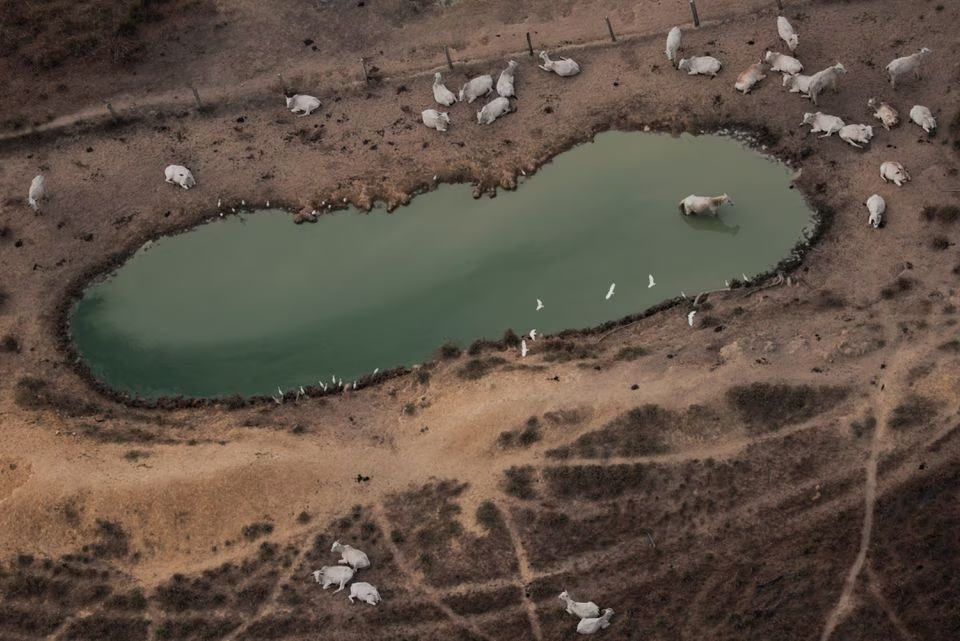JBS says Brazil needs mandatory cattle tracking to stop deforestation

Brazil needs a mandatory government program to track cattle being raised for beef to prevent deforestation, the head of the world’s largest meat company, Brazil’s JBS SA
by Tom Polansek – Reuters
Cattle ranching, along with clearing land to sell timber or grow crops, is driving deforestation in the Amazon rainforest. The destruction of rainforests, which serve as carbon sinks, imperils global climate targets.
“The only solution for this deforestation in Brazil is to have a national mandatory traceability system,” JBS CEO Gilberto Tomazoni said on a webcast of a New York Times panel on climate change.
“Then we can track individual by individual the animals. We don’t have, so far, a national program for traceability.”
“JBS has said that it tracks its direct cattle suppliers with “satellite geo monitoring” and its indirect suppliers with blockchain technology to prevent deforestation in its supply chain”Brazil is the world’s largest beef exporter. The country’s beef industry blames criminals for most deforestation.
JBS has said that it tracks its direct cattle suppliers with “satellite geo monitoring” and its indirect suppliers with blockchain technology to prevent deforestation in its supply chain.
But environmentalists oppose the company’s plans to list shares in New York because of concerns about its impact on deforestation, climate change and other issues.
Activist group Global Witness said that for every $1,000 invested in JBS since 2010, there has been around one soccer field of forest destruction in Brazil linked to its supply chain.
JBS has said that its listing proposal would “enhance corporate governance and transparency through adherence to SEC standards.” As of January 2026, only producers registered in its blockchain tool will be able to continue doing business with JBS, it said.
Last year, an audit by Brazilian prosecutors found nearly 17% of the cattle bought by JBS in Para state in the Amazon rainforest from July 2019 to June 2020 allegedly came from ranches with “irregularities” like illegal deforestation. JBS said at the time that issues that led to the purchases had been fixed.











